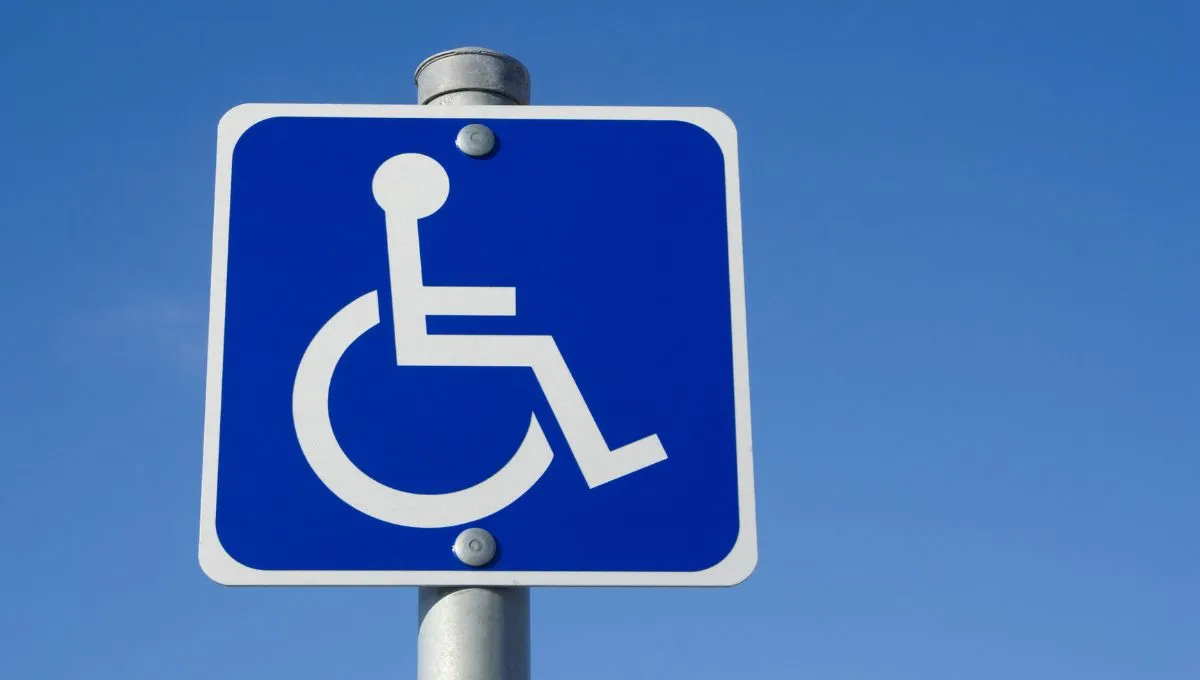
Driving and parking during pregnancy can be challenging. Many expecting mothers wonder if they can utilize handicap parking spots to make things a bit easier. With nearly 4 million babies born in the United States each year, this is an important question for millions of women.
This comprehensive guide will examine whether pregnant women can legally park in handicap spots, the process for getting a permit, the ethics of using the reserved spots, the potential benefits, problems to be aware of, tips from other moms, and frequently asked questions.
As from my years of experience, I’ve seen first-hand the difficulties my pregnant patients face when running errands and getting around. Proper parking accommodations can make a big difference in staying comfortable and avoiding injury during pregnancy. Throughout this article, I’ll share my experience to help explain the ins and outs of parking as an expecting mother.
Related: When Do I Have to Stop Flying During Pregnancy? (Policies on 20 Global Airlines)
Can Pregnant Women Park In Handicap Spaces
Pregnant women can park in handicap spaces under certain conditions. If the space is designated as “stork parking” or “family parking,” you can park there without a handicap parking permit. However, if the space requires a handicap parking permit, you should not park in it unless you have one, as parking in such spaces without a permit can result in fines or towing.
If you have pregnancy complications that prevent you from being mobile, you can apply for a temporary handicap parking permit. You will likely need a doctor’s note verifying your condition, so check with your DMV about the required documentation. In some states, like Illinois, pregnant women in their third trimester can obtain a temporary disability parking placard under a new law called “Henry’s Law“. The application process is simple, and you can take the completed form to a local DMV to receive the placard.
It is important to note that expectant mother parking is a courtesy and not mandated by law. If the disability spots are full, you can use any available spot, as disability parking is legally regulated.
Legally, pregnant women cannot park in handicap spots without a valid handicap permit.
Legality of Parking in Handicap Spots When Pregnant
When it comes to parking in handicap spots, the laws are quite clear. Pregnant women cannot legally park in handicap parking spaces unless they have a valid handicap placard or license plate.
Simply being pregnant does not qualify someone for the use of designated handicap parking. These spaces are specifically reserved, by law, for people with mobility impairments. Pregnancy alone is not considered a disability.
There are a few exceptions to this rule:
- Airports often allow pregnant women to utilize handicap parking spaces without a permit. However, policies can vary by airport so it’s important to check their rules.
- Amusement parks and theme parks may provide preferential parking to expecting mothers. But again, their internal policies differ. Don’t assume you can use handicap parking at parks without first verifying.
- Some individual stores or shopping malls make exceptions for pregnant shoppers to use handicap spots. But this is up to their own discretion. Don’t expect special treatment unless a written policy is posted.
The key point is that pregnancy itself does not qualify for handicap placards or plates in any state. And parking in a designated handicap space without proper credentials can result in substantial fines. Pregnant women should utilize regular parking spots unless they have a temporary disability permit from their doctor. Or unless a retail establishment specifically allows expecting mothers to use handicap parking.
Related: Ingrown Hair on C-Section Scar: Solutions
Getting a Handicap Parking Permit
Many pregnant women wonder if they qualify for a handicap parking permit. The eligibility criteria varies by state, but generally you need a doctor to recommend a permit.
To get a temporary handicap parking permit, you’ll need a note from your doctor stating your condition limits mobility or endurance and recommending a permit. The doctor’s note should explain how pregnancy impacts your ability to walk moderate distances. Some states may require completing a state form as well.
Once you have the doctor’s recommendation, you can apply for a temporary handicap parking permit through your local motor vehicle department. The permit is often valid for the duration of the pregnancy. Some states allow pregnant women to get permits lasting 60-90 days which can be renewed.
The application process typically involves providing proof of identity, age, residency and submitting the doctor’s note. You may need to provide a medical report, completed state forms or pay an administrative fee. The motor vehicle department will review your eligibility and issue a temporary handicap parking permit if approved.
Displaying the permit when parking in designated handicap spots is important to avoid tickets or fines. Remember, the handicap parking privileges are only for the pregnant woman’s use, not friends or family.
Related: Expecting and Excited: How to Pack the Perfect Pregnancy Travel Kit
Ethics of Using Handicap Spots
While using handicap parking spots may seem convenient when pregnant, it’s important to consider the ethics of taking spaces meant for those with disabilities. Some key considerations around the ethics of using handicap spots when pregnant include:
- Inconveniencing those who need it – Handicap spots are designated for people with limited mobility and other disabilities. Using these spaces when not disabled could make it difficult for those who truly need close access. Even if pregnant, unless you have a temporary disability permit, it’s worth assessing if you’re impeding access for someone with greater need.
- Judgement from others – Using a handicap spot when visibly pregnant may lead to dirty looks or judgement from others. Those who don’t know you’re pregnant may assume you’re improperly using the space. This could lead to unnecessary confrontations. Consider how you’ll feel if questioned or judged for using the spot.
While the convenience may be appealing, it’s important to thoughtfully weigh whether using handicap parking is ethical if you don’t have a permit. Inconveniencing disabled individuals and facing judgement are real possibilities. Thinking carefully about need and what feels right can help guide decisions around using handicap parking spots during pregnancy.
Related: How To Get Rid Of Linea Nigra? Full Guide
Benefits of Using Handicap Spots
Pregnant women can benefit from using handicap parking spots in several ways:
- Avoid long walks: Handicap spots are located closest to building entrances, minimizing the distance pregnant women need to walk. This helps avoid fatigue and discomfort.
- Can sit and rest: The extra space in handicap spots allows pregnant women to sit and rest comfortably before and after walking. Taking breaks can help reduce strain.
- Wider spots: Handicap spots have extra width to accommodate wheelchair lifts. This provides more room for pregnant women to get in and out of vehicles. Door openings are less obstructed.
By using handicap parking, pregnant women can conserve energy and take necessary breaks. The convenience of closer parking and wider spaces caters well to the needs of expectant mothers. Utilizing handicap spots allows pregnant women to run errands and go about daily activities with less burden and strain.
Potential Problems
While using handicap parking spots can be beneficial for some pregnant women, there are some potential issues to consider:
- Abuse of privilege – Some people may try to take advantage of the allowances for pregnant women by using handicap spots when they do not actually need them. This can make it harder for people with legitimate needs to find parking. It’s important to only use handicap spots when truly necessary.
- No enforcement – In many locations, there is no system to verify that an individual is pregnant or has a legitimate need for the handicap spot. This makes it easier for non-pregnant people to illegally park there. Stronger enforcement could help ensure the spots are available for those who truly require them.
- Inconveniencing others – While pregnant women often have valid reasons for using handicap parking, it does mean one less spot for people with permanent disabilities. Some may see it as pregnant women taking spots from those more in need. Being courteous and only using the spots when pregnancy poses a real mobility challenge can help avoid inconveniencing others.
- Misunderstandings – If a pregnant women who appears healthy and mobile uses a handicap spot, it may lead to others viewing them as unethical or fraudulent. However, disabilities come in many forms and are not always visible. This emphasizes the need for education, compassion and avoiding judgment.
Related: 30 Pregnancy Myths: Separating Fact from Fiction
Accommodations from Retailers
Many retailers offer special accommodations for pregnant women, even if they don’t have a handicap permit. This can make shopping trips easier and reduce walking for expectant mothers.
Special Parking
Some retail stores, such as Target and Walmart, have designated expectant mother parking spaces close to the entrance. While these are not legally enforceable like handicap spots, they do provide convenient parking for pregnant shoppers. Stores want to make the shopping experience smooth for all customers. So taking advantage of these special spots is a good option.
Curbside Pickup
Curbside pickup allows customers to shop online and have their purchases brought directly to their car. Retailers like Buy Buy Baby, Bed Bath and Beyond, and Barnes & Noble offer this for free or low cost. This eliminates navigating the parking lot and store for pregnant women. Simply park in a designated curbside pickup spot, call the store when you’ve arrived, and they’ll promptly deliver your items.
Valet Parking
For ultimate convenience, some malls and luxury retailers provide valet parking. The valet will park and retrieve your car while you shop. The service is usually free for pregnant women, even without a handicap permit. Take advantage of valet parking when available to reduce walking distances. High-end department stores like Nordstrom, Neiman Marcus, and Bloomingdale’s are most likely to offer complimentary valet parking for expectant mothers.
Related: How to Deal with Pregnancy Insomnia?
Tips for Pregnant Drivers
Pregnant women face various challenges while driving. Here are some useful tips to make driving safer and more comfortable during pregnancy:
Parallel Parking
- Check your vehicle’s blind spots by turning your body completely when backing up. Your expanded belly can block visibility.
- Go slower and take your time parking. Rushing increases the risk of accidents.
- Ask someone to help guide you into the spot. Having an extra set of eyes helps with limited visibility.
Driving Position
- Sit 10-15 cm from the steering wheel to accommodate your bump.
- Recline your seat slightly and use a small pillow for extra back support. Proper posture reduces back pain.
- Keep your knees apart at the same distance as your hips. This opens up space for your belly.
Visibility
- Adjust your side and rearview mirrors to adapt for blind spots.
- Clean mirrors and windows frequently for maximum visibility.
- Lean forward or adjust your body when looking over your shoulder to check blind spots.
- Drive with your headlights on, even during the daytime, to be more visible to other drivers.
Following these simple tips can make driving while pregnant much safer and more comfortable! Let me know if you would like me to expand on any of these sections.
Related: Trend Alert: 8 Hair Colors Everyone Will Be Asking For This Winter
Frequently Asked Questions (FAQs)
Can I get a temporary handicap permit when pregnant?
Many pregnant women wonder if they can get a temporary handicap permit to park in designated handicap spots. The requirements vary by state, but in general you need a doctor to certify that you have a medical condition that impacts mobility. Some states may offer temporary permits valid for the duration of a pregnancy. Check with your local DMV.
Is it ethical to use handicap parking when pregnant?
This is a complex issue without a definitive answer. Some view it as justified to make parking easier for pregnant women, while others argue permits should be reserved for those with permanent disabilities. Consider your personal mobility challenges and prolonged walking difficulties before using handicap spots.
Can I request a wheelchair at the airport when pregnant?
Most airlines will provide airport wheelchairs upon request to pregnant passengers in their third trimester. This allows expectant mothers to get assistance navigating terminals without walking long distances. Be sure to make the request in advance. Airlines generally don’t require proof of pregnancy.
Do I need a doctor’s note to get wheelchair assistance when flying while pregnant?
Airlines do not require a doctor’s note for pregnant passengers to request airport wheelchair assistance. A verbal request is typically sufficient. However, a note may expedite the process if there are any issues accessing a wheelchair. Some women choose to get a note as a precaution.
What kind of accommodations can I request from retailers?
Many major retailers allow pregnant women to skip lines or use mobility scooters. Department stores like Walmart, Target and Macy’s aim to provide pregnant shoppers accommodations upon request. Grocery stores may also have motorized carts available. Check with customer service.
Conclusion
Throughout this article we have explored several aspects related to pregnant women parking in handicap spots. To summarize the key points:
- Legally, pregnant women cannot park in handicap spots without a valid handicap permit. Temporary handicap permits are available in some cases based on doctor recommendation.
- Parking in handicap spots without a permit is unethical and takes spaces away from disabled individuals. However, some exceptions may apply in late pregnancy or emergencies.
- Handicap spots can provide important benefits like proximity for women with high-risk pregnancies. Retailers may also offer accommodations.
- Potential problems like risk of fines and judgment from others exist. Careful consideration of others is recommended.
- Tips covered included applying for a temporary permit, planning ahead, walking when able, and talking to retailers about accommodations.
The main takeaway is that legal handicap parking requires a valid permit. Pregnant women should balance their needs with being considerate of others. Thinking ahead, making alternative plans when possible, and communicating with businesses can help pregnant drivers use parking spots in a responsible manner.












